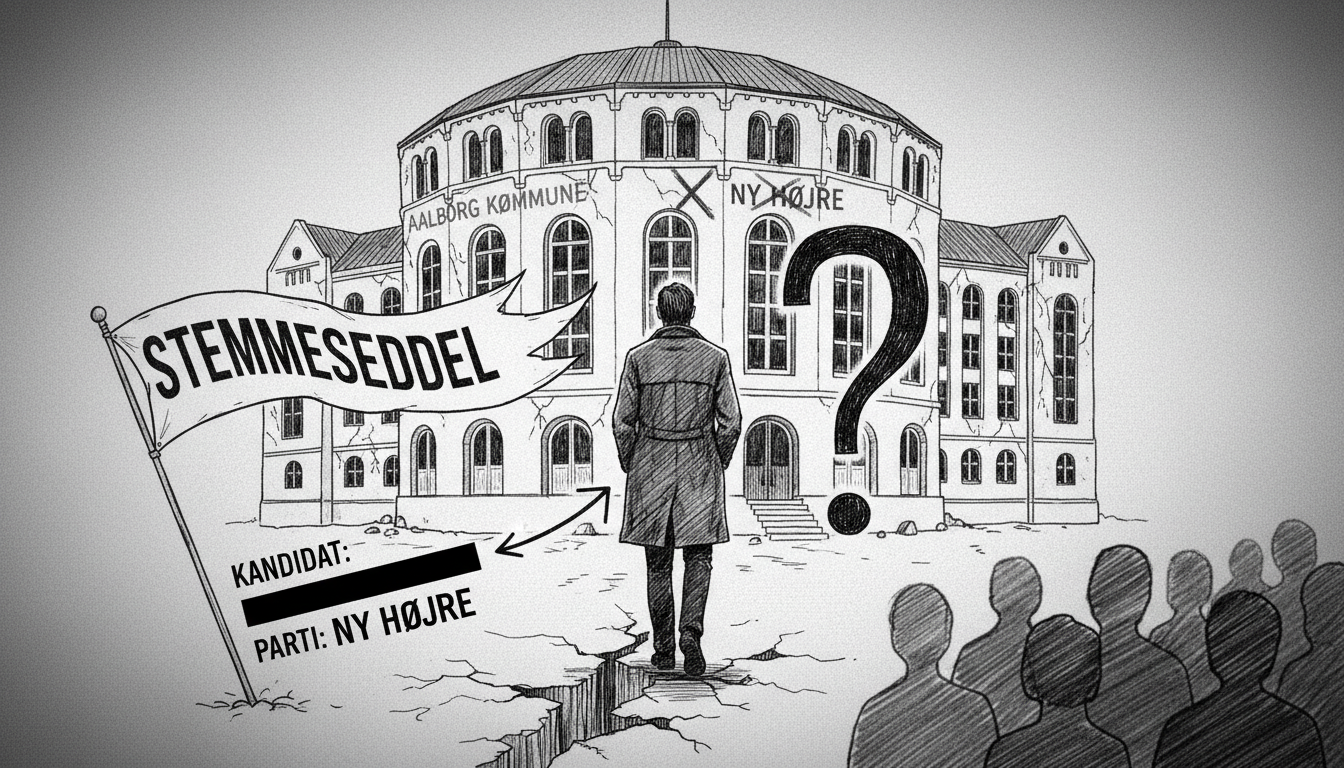A leading political candidate has dramatically quit his party just one week before Denmark's municipal elections. Per B. Frostholm from Hals announced his departure from the New Right party in a Sunday evening Facebook post. He remains their top candidate for Aalborg's municipal council despite his resignation.
Frostholm cited policy changes regarding the EU and international conventions as his primary reasons for leaving. He stated these decisions were made without proper respect for party statutes. The candidate expressed he could no longer ethically support certain directions the party had taken.
Danish election rules create an unusual situation for voters. Frostholm cannot withdraw his candidacy this close to election day. His name will still appear on ballots as the New Right's leading representative. This presents voters with a complicated choice about party loyalty versus individual candidates.
Frostholm addressed this paradox directly in his statement. He promised to work across party lines if elected to Aalborg's municipal government. The candidate emphasized he would prioritize people over political systems and collaborate with any party based on individual issues.
This incident highlights unique aspects of Denmark's local election system. Candidates cannot withdraw within a specific period before elections. The system prioritizes ballot stability over candidate commitment changes. Voters must consider whether they support the party or the individual when such conflicts arise.
Political analysts note this situation reflects broader tensions within Denmark's conservative parties. Internal disagreements about EU policy and international commitments have surfaced repeatedly. The New Right has experienced similar internal conflicts in recent years over European integration questions.
International observers should understand Denmark's municipal elections operate differently from national contests. Local councils handle education, elderly care, and infrastructure decisions. These elections often focus more on practical governance than ideological purity. Candidates frequently cross party lines on specific local issues.
The timing creates significant complications for both the candidate and voters. Frostholm must campaign while explaining his departure from the party he represents. Voters face uncertainty about whether his election would benefit the New Right or an independent voice.
This situation raises important questions about political accountability in local government. Should candidates remain bound to parties they no longer support? Do election rules adequately address last-minute ideological changes? These questions become particularly relevant in Denmark's consensus-oriented political culture.
Similar candidate-party conflicts have occurred in other Nordic countries recently. Sweden and Norway both experienced high-profile cases where candidates diverged from party platforms during campaigns. The Nordic model typically emphasizes party discipline, making such public breaks noteworthy.
For Aalborg residents, the practical implications matter most. The city faces decisions about urban development, climate adaptation, and public services. Voters must determine whether Frostholm can effectively represent their interests despite his changed party status.
The outcome could influence how Danish parties handle internal dissent moving forward. It may also affect candidate selection processes for future elections. Parties might implement stricter loyalty requirements or clearer withdrawal procedures.
Election day will reveal whether voters prioritize party labels or individual candidates. The results could signal changing attitudes toward political representation in Danish local democracy. All Nordic countries will watch how this unusual situation resolves.

